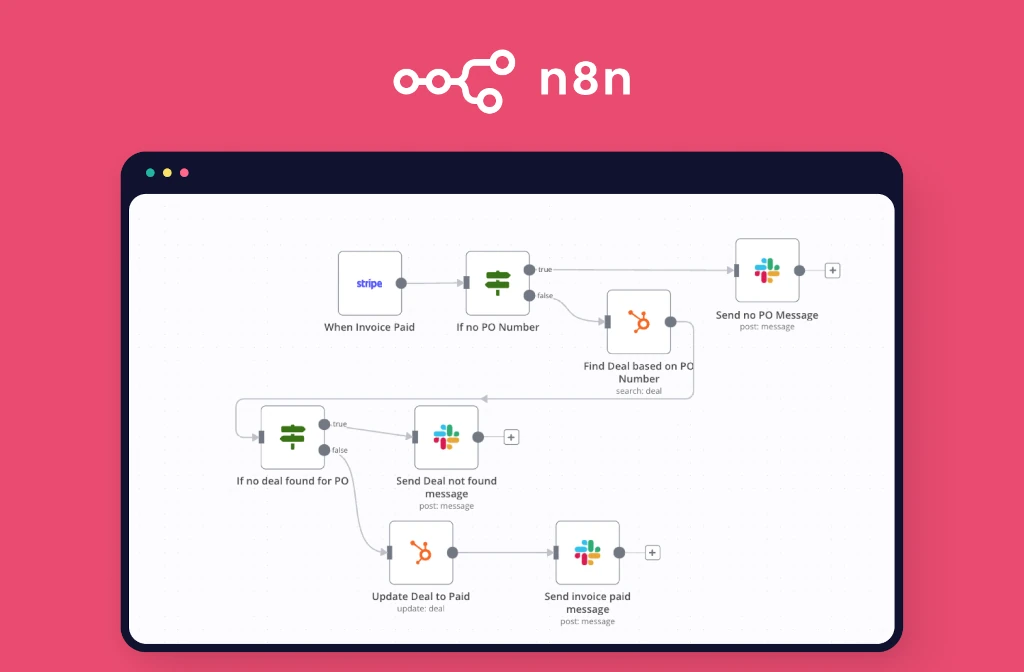n8n is increasingly popular alternative to Zapier

n8n has emerged as a popular and increasingly compelling alternative to Zapier in the workflow automation landscape. Here’s a breakdown of why:
Cost-Effectiveness:
- Self-Hosting: n8n’s open-source nature allows users to self-host it on their own infrastructure for free, incurring only server costs. This can lead to significant savings compared to Zapier’s tiered pricing, especially for high-volume automation.
- Execution-Based Pricing (Cloud): Even n8n’s cloud offering charges based on workflow executions rather than individual tasks within a workflow. This can be more cost-predictable and potentially cheaper for complex workflows with many steps.
Flexibility and Customization:
- Node-Based Visual Editor: Both platforms offer visual workflow builders, but n8n’s node-based system is often seen as more flexible for creating complex logic, including loops and branching.
- Code Integration: n8n allows users to integrate JavaScript and Python directly into their workflows, offering greater control and the ability to handle more intricate data transformations or connect to virtually any API.
- Custom Nodes: Users can build and deploy their own custom nodes for integrations not readily available, extending n8n’s capabilities significantly.
Data Control and Security:
- Self-Hosting: For organizations with strict data privacy and security requirements (e.g., GDPR, HIPAA), n8n’s self-hosting option provides complete control over where data is processed and stored.
Extensibility and Open Source:
- Community-Driven: As an open-source project, n8n benefits from a growing and active community that contributes new integrations, features, and support.
- Fair-Code License: n8n utilizes a “fair-code” license, ensuring the source code remains visible and self-hostable while offering enterprise-level features under a commercial license.
Scalability:
- Self-Hosting: n8n’s self-hosting model allows scalability limited only by your server resources. You can scale horizontally by adding more server capacity as your automation needs grow.
Where Zapier Still Holds Strengths:
-
Ease of Use and Onboarding: Zapier is generally considered easier for beginners and non-technical users to pick up and start automating simple tasks due to its straightforward, linear workflow builder and vast library of highly polished, pre-built integrations (over 7,000).
-
Vast Integration Ecosystem: Zapier boasts a significantly larger number of pre-built integrations compared to n8n (around 400+). This can be a major advantage if you rely heavily on less common or niche applications.
-
Managed Service: Zapier’s fully cloud-based nature means users don’t have to worry about server maintenance, updates, or infrastructure management.
Use Cases Where n8n Shines as an Alternative:
-
Complex Workflows: When you need intricate logic, branching, and looping in your automations.
-
Custom Integrations: When you need to connect to applications without existing pre-built integrations.
-
Data Privacy and Compliance: When you require full control over your data and its processing location.
-
Budget-Conscious Users: Especially for users with high automation needs or those comfortable with self-hosting.
-
Developers and Technical Users: Those who want the flexibility of code and deeper customization options.
In Conclusion:
n8n has emerged as a powerful and increasingly popular alternative to Zapier, particularly for users who prioritize cost-effectiveness, flexibility, customization, and data control. While Zapier remains a strong contender for its ease of use and extensive pre-built integrations, n8n’s open-source nature and robust feature set make it a compelling choice for a growing number of individuals and businesses looking to supercharge their automation efforts. The decision between the two often comes down to a trade-off between ease of use/integration breadth (Zapier) and cost/flexibility/control (n8n).